Medications Used To Treat Heroin Withdrawal
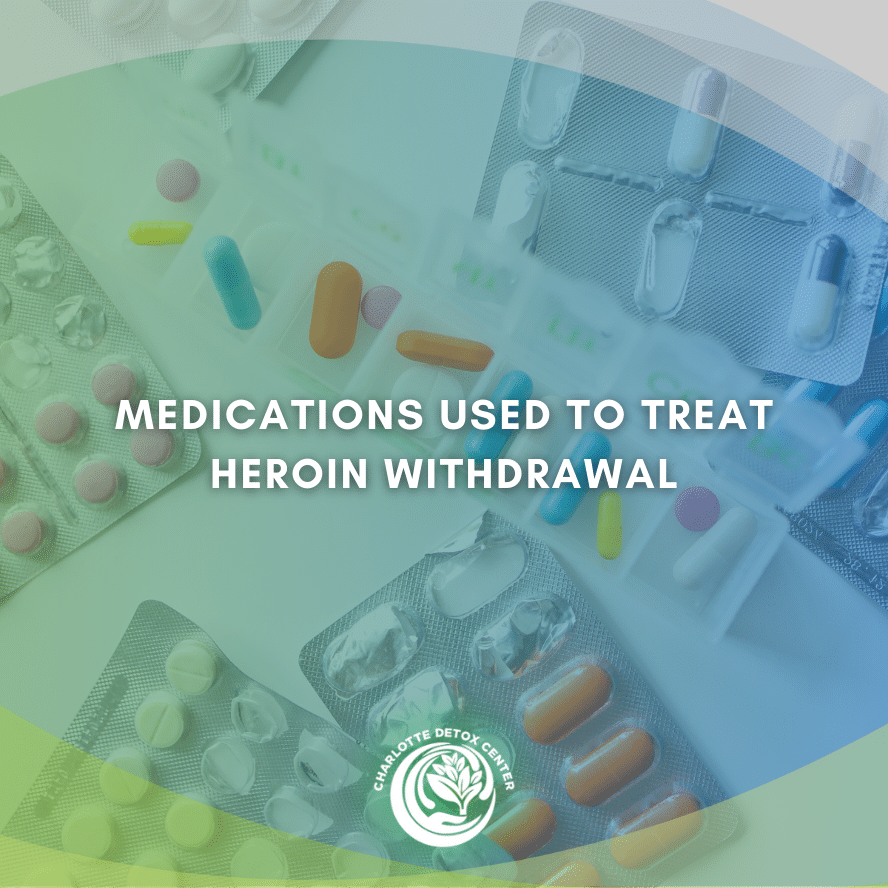
Medically Verified: 2/1/24
Medical Reviewer
Chief Editor

All of the information on this page has been reviewed and verified by a certified addiction professional.
Heroin withdrawal is what happens when someone who is physically dependent on heroin abruptly stops using the drug. As a powerful and addictive opioid, heroin suppresses the central nervous system and reduces pain sensations. However, when suddenly removed from the body of an addicted individual, this person’s nervous system will become overactive, resulting in painful and even life-threatening withdrawal symptoms.
While heroin withdrawal is typically not life-threatening and generally mimics your average case of the flu, it can be extremely difficult to make it through the entire 8-10 day withdrawal timeline. Cravings can become so intense that some individuals give in to their incessant thoughts of drug use while others are unable to get over the unpleasant physical sensations. Fortunately, medicine can be administered to help reduce the severity and duration of heroin withdrawal symptoms. Drug and alcohol detox centers in Charlotte, North Carolina may use a variety of prescription medications to treat heroin withdrawal.
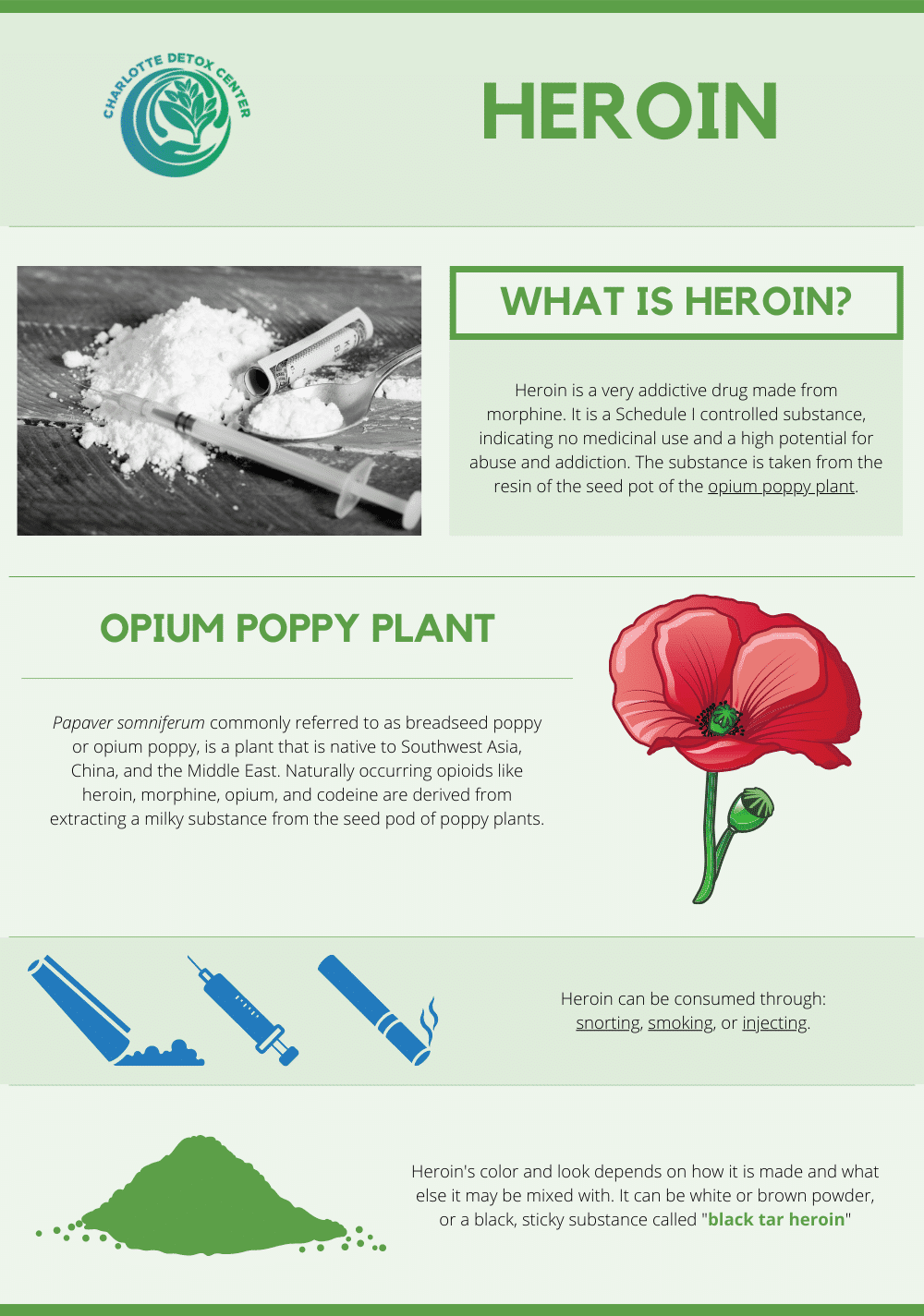
Heroin Withdrawal Symptoms and Complications
Just hours after a person takes their last dose of heroin, withdrawal symptoms will start showing up. Early symptoms of heroin withdrawal include:[1]
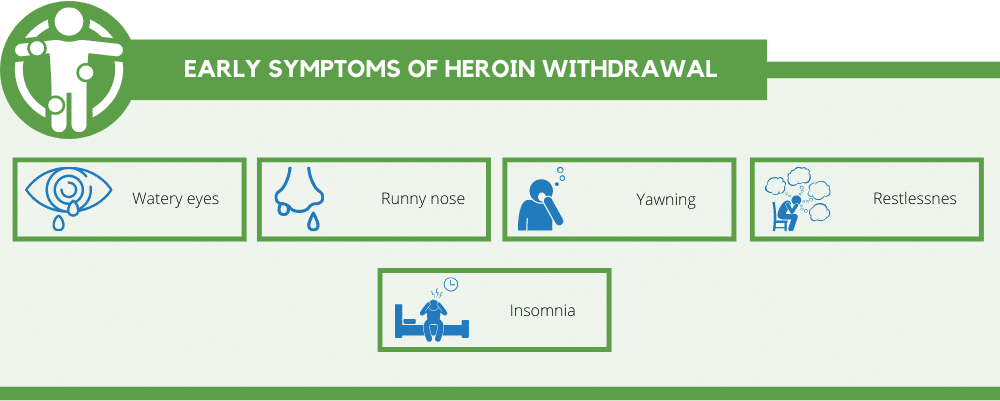
- Lacrementation (watery eyes)
- Runny nose
- Yawning
- Restlessness
- Insomnia
As time progresses, these symptoms will get worse. Other symptoms that may appear include:
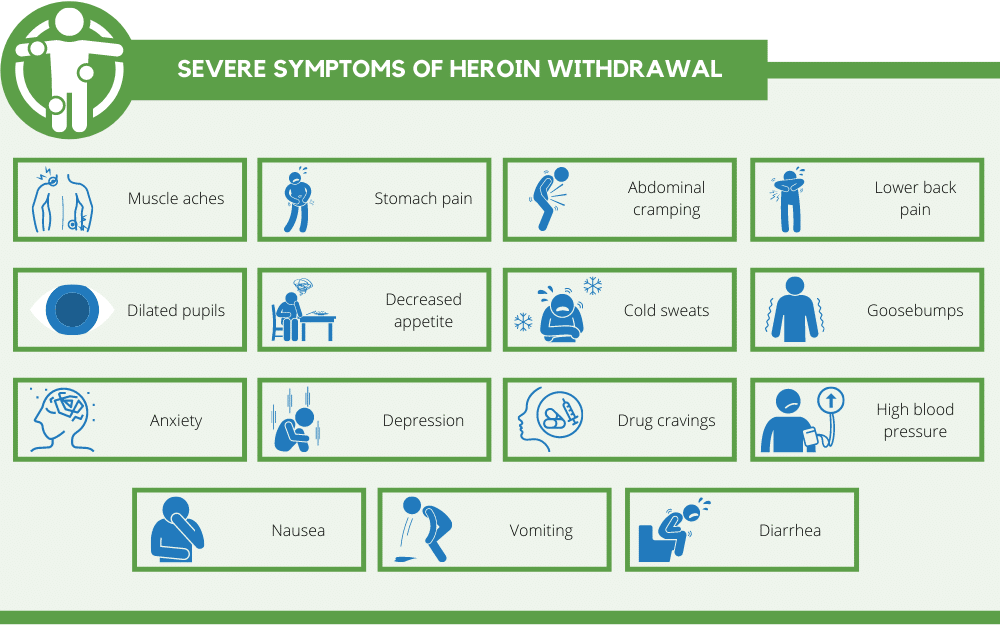
- Muscle aches
- Stomach pains
- Abdominal cramping
- Lower back pain
- Dilated pupils
- Decreased appetite
- Cold sweats
- Goosebumps
- Anxiety
- Depression
- Drug cravings
- High blood pressure
- Nausea
- Vomiting
- Diarrhea
While the symptoms of heroin withdrawal themselves are typically not life-threatening, some of the complications can be. Two of the most concerning aspects of heroin withdrawal are:
- Dehydration – Nausea, vomiting, and diarrhea on top of an upset stomach can easily lead to dehydration if people aren’t careful to monitor their water intake.
- Relapse/overdose – People may struggle with cravings, experience a lowered tolerance, and relapse to try and get rid of the cravings, only to find that they have taken too much and experience an overdose.
Prescribed medications aim to help patients avoid these potentially fatal outcomes.
Medications for Heroin Withdrawal
Medical detox centers in Charlotte, North Carolina stay up-to-date with the latest in addiction medicine. They realize that the most effective approach to heroin treatment is one that involves FDA-approved medications. As a result, detox centers may utilize a variety of different medications to treat heroin withdrawal and dependence.[2]
Four of the most commonly used medications include:
- Suboxone
- Subutex
- Methadone
- Clonidine
Suboxone (Buprenorphine/Naloxone)
Suboxone is a sublingual film containing two medications: buprenorphine and naloxone. Buprenorphine is a partial opioid agonist that blocks the effects of opioids, reduces withdrawal symptoms, and alleviates cravings. As an opioid, however, it can produce some pleasurable and addictive side effects similar to other opioids. Naloxone’s role is to prevent buprenorphine abuse by blocking the effects of other opioid drugs, making it impossible for people to get high on Suboxone. Suboxone can be taken 7-10 hours after the last dose of heroin and can help reduce the severity and duration of withdrawal.
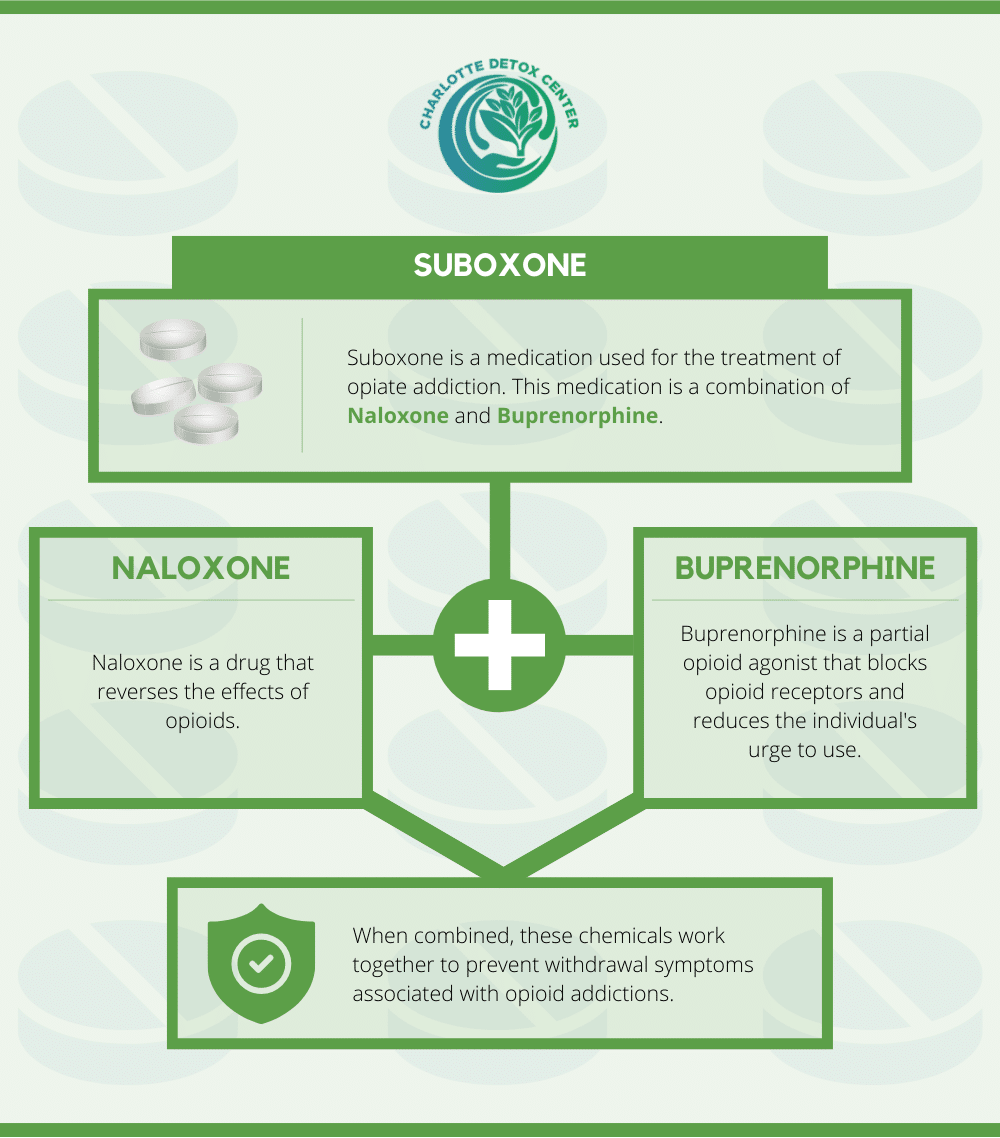
Subutex (Buprenorphine)
Subutex is very similar to Suboxone, however, it only contains buprenorphine. It comes in the form of a sublingual tablet that dissolves under the tongue. After 7-10 hours or when symptoms of withdrawal begin, patients can take their first dose of Subutex to help alleviate their symptoms.[3] It may also reduce the length of time heroin withdrawal lasts.
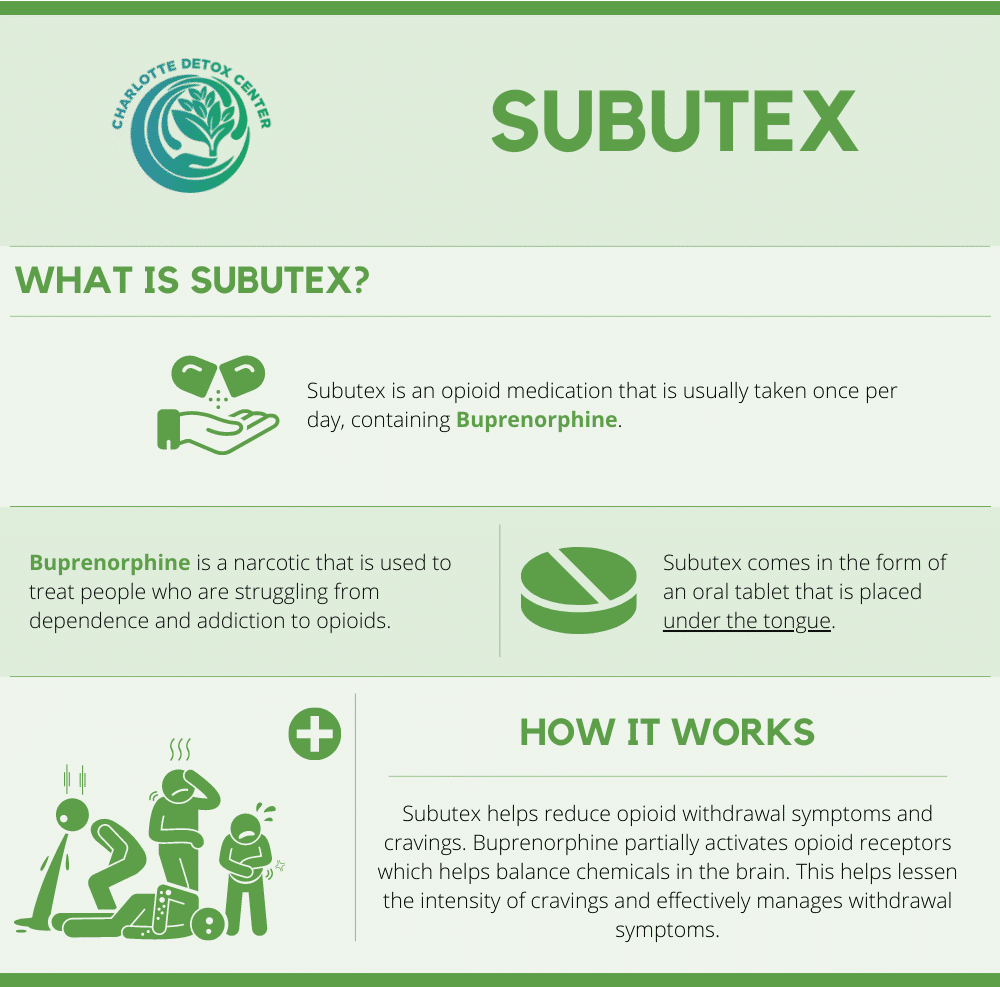
Methadone
Methadone is an opioid medication that is sometimes prescribed to treat severe pain in patients who cannot take other medications. However, it is also used to prevent and reduce heroin and other opioid withdrawal symptoms. The medication works by changing the way the brain and nervous system respond to pain. Since methadone is an opioid, its use must be closely monitored. Methadone abuse can also be addictive, which is why buprenorphine is a more popular medication used to treat heroin withdrawal.[4]
Clonidine
Clonidine is a medication that is commonly prescribed to treat high blood pressure. As an alpha-agonist hypotensive agent, this medication can also decrease heart rate, promote relaxation, and reduce impulsivity. As a result, it is often used to manage high blood pressure, anxiety, and other symptoms of heroin withdrawal. Clonidine may be given alongside other treatment medications, including methadone or buprenorphine.[5]
Medical Detox for Heroin Withdrawal
The safest and most responsible way to detox from heroin is to do so at a professionally monitored medical facility. Medical drug detox centers in Charlotte, North Carolina can connect you with the medications and resources you need to get through heroin withdrawal successfully. Using individually-tailored treatment programs and an evidence-based approach, we can arm you with the tools and resources you need to begin your recovery journey. Don’t let heroin addiction run your life any longer – get help today.
References:
